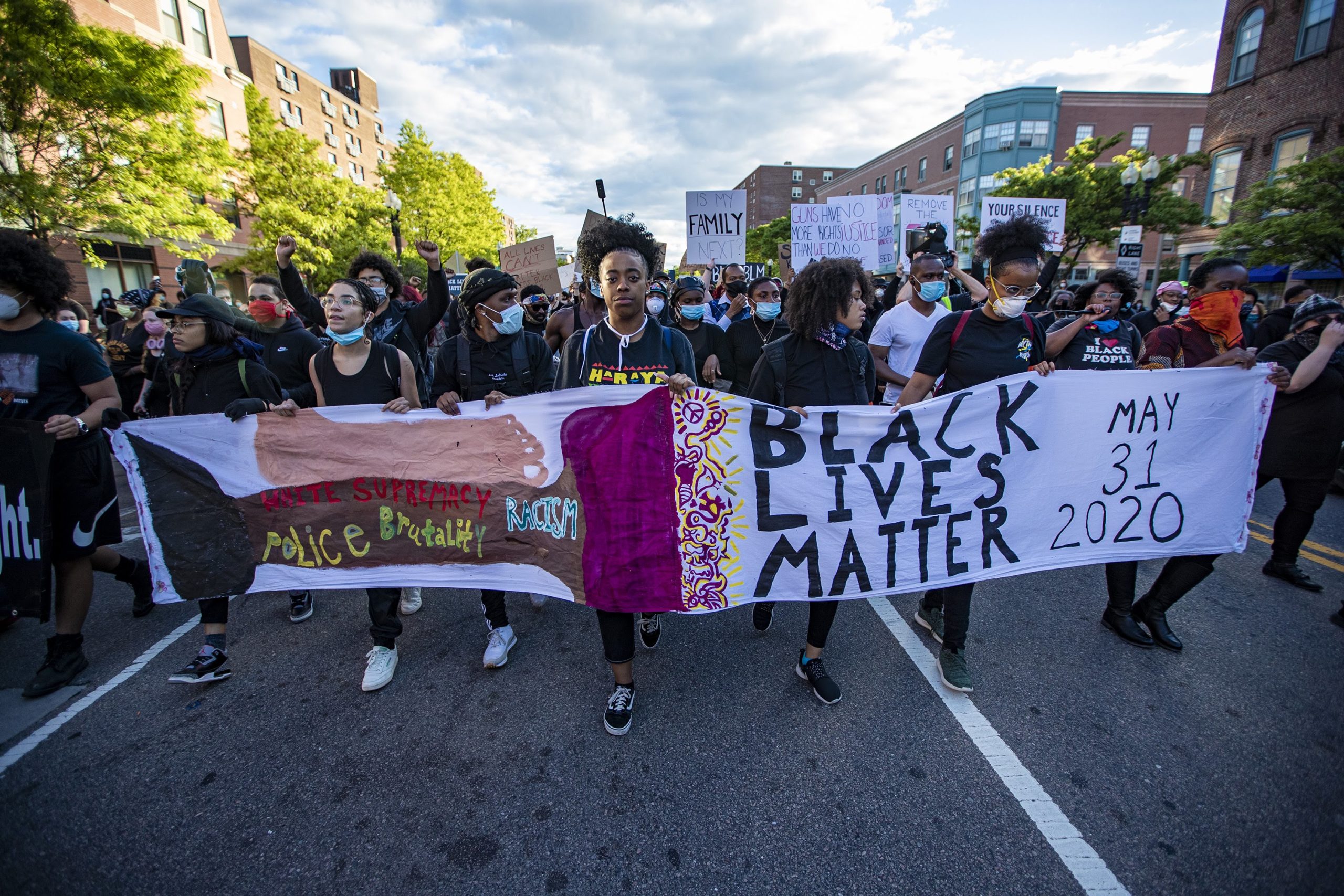What’s Changed? ‘Not Enough’: Boston Protesters Reflect On The Year Since George Floyd’s Killing

Thousands of protesters marched up Washington Street on their way to rally at the Massachusetts State House on May 31, 2020. (Jesse Costa/WBUR)
Tanoah Pierre didn’t tell her family when she headed out to join demonstrators in downtown Boston late last May. She knew her relatives would be concerned about the coronavirus or the possibility that violence might break out and try to discourage her from going.
But with the video of a Minneapolis police officer kneeling on George Floyd’s neck already sparking massive protests in cities around the country, talking with friends and posting on social media felt insufficient.
“I need to be out there,” she recalled telling herself, “even if it’s just walk out there, and, I don’t know, scream or yell or just repeat what everybody else is saying.”
There was an element of fear, said Pierre, 19, about marching and chanting among thousands of others. And yet, “It just felt so necessary that I couldn’t even think about being scared or being in danger,” she said. “I just felt like this is what has to be done. And whatever happens, it happened for a good reason.”
Pierre became one of thousands of people across Greater Boston who took to the streets in protest after the killings of Ahmaud Arbery, Breonna Taylor, George Floyd and many others. Together, these protesters made political and cultural waves, igniting new conversations about racism and police brutality in Massachusetts and around the country.
To mark the one-year anniversary of Floyd’s murder at the hands of police, WBUR asked some of the people who protested in Boston last summer to reflect on their experiences — how they’ve changed, how their communities have changed, and where they hope the movement for racial justice will go next.
Read the rest of the story at WBUR’s website.
